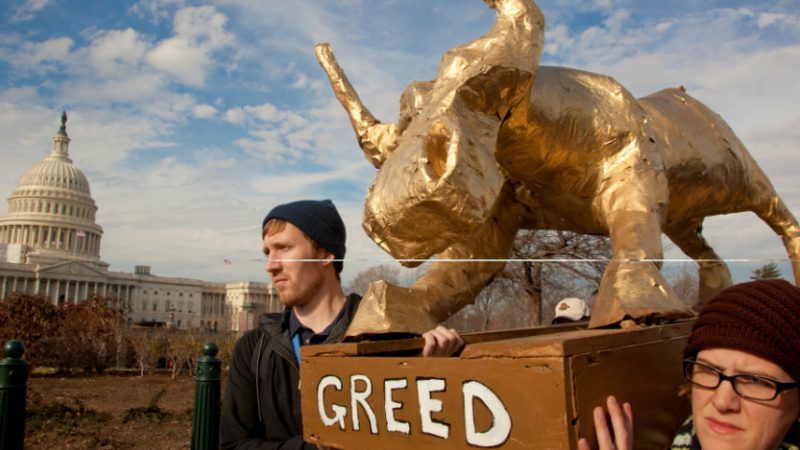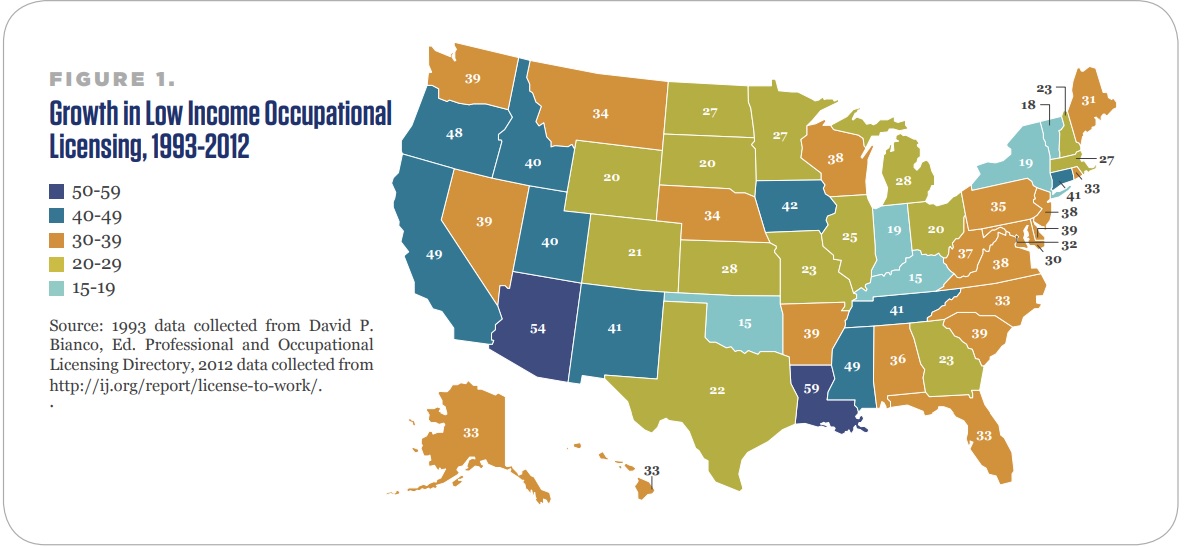Worried About Economic Inequality? Get Rid of Occupational Licensing
State licensing laws for low-income professions limit access to jobs and restrict mobility for those who have them. That's a recipe for economic inequality.

For individuals seeking work in many low-income professions, state licensing laws serve as a barrier to entry by requiring time-consuming and expensive classes before a job can be had.
Even after obtaining one of those important government-issued permission slips, new research suggests, workers in many licensed professions continue to suffer from the economic burdens imposed by occupational licensing laws.
"Licensing may limit entry into a profession and reduce the potential earnings of those attempting to enter that profession," say researchers from St. Francis University in Pennsylvania, Campbell School of Business in Georgia, and Central Michigan University. Their findings are contained in a study released Tuesday by the Archbridge Institute, a nonprofit that works to promote economic mobility for workers. "In addition to raising prices for consumers, occupational licensing may be creating barriers to opportunity that prevent the least fortunate Americans from achieving the American dream of prosperity."
Economic mobility is closely tied to physical mobility. But licensed workers often end up locked into place by licensing laws that create not only a barrier to entry, but a barrier to exiting certain states in favor of looking for work somewhere else. A 2017 study by researchers at the University of Minnesota found that workers whose jobs require a state-issued license lose out on between $178 million and $711 million they could have earned by moving to a different state. The new report from the Archbridge Institute is an attempt to go a step beyond that calculation and determine how that lost income affects economic inequality.
Workers in low- and moderate-income professions in states with high levels of licensure—like Louisiana, where Gov. John Bel Edwards, a Democrat, has called for a reduction in licensing requirements—demonstrate less upward mobility than workers in states that have lower licensing burdens, like Oklahoma. Louisiana licenses 59 out of 120 low-income professions included in the study, while Oklahoma licenses only 15 of those same professions. The growth of licensing corresponds with an increase in economic inequality by between 4 percent and 15 percent depending on the state, the study suggests.

State policymakers who are serious about tackling the issue of income inequality need to consider the role that licensing plays in perpetuating that problem. It does not make sense to prevent someone from earning a living as, say, a barber merely because they did not finish high school and therefore do not meet an arbitrary requirement for a state license. And it makes even less sense for states to require expensive and time-consuming re-licensure processes when workers move from somewhere else.
A possible solution to the second problem is the establishment of interstate compacts that recognize out-of-state licenses and allow reciprocity across state lines. That's something the Federal Trade Commission has been encouraging state lawmakers to consider.
Fixing the first problem requires a complete reevaluation of why licensing laws exist in the first place. They are meant to protect the public, but too often become tools for incumbent license-holders to wield against would-be competitors. But it's now become clear that fencing out competition does significant damage to more than just the specific workers who are unable to obtain a license—such restrictions also drive an economic wedge between licensed workers and unlicensed ones. The former group benefits when opportunities are removed opportunity from the latter. Economic inequality increases as a result.
This makes perfect sense. If state policy is stopping some individuals from obtaining employment, those individuals are naturally going to fall behind their gainfully employed peers, particularly if the same state policy is boosting the earnings of those who are able to work in a protected profession. Loosening licensing laws, therefore, must be a fundamental part of tackling economic inequality.
